quests, failure, desire
or: contra defensive postures
Hereafter, in a better world than this,
I shall desire more love and knowledge of you.— Shakespeare
I watched The Green Ray (1986) recently, one of Eric Rohmer’s beautiful films. It is the story of a woman ostensibly looking for somewhere to go for vacation, but really looking for someone to be with. To our protagonist, an escape is not quite so good if it isn’t shared. Her friends sympathize with her goals, less so her misery, but they try their best to be helpful.
I found it interesting what the film did not affirm. In modern culture there are relationship adages stressing independence as a primary virtue, or even a precondition, such as “One needs to be happy alone before one can be happy with someone else.” No one in the film gives a care for this kind of sentiment. I don’t either, it strikes me as unreasonable, almost callous. Why shouldn’t you be unhappy alone? Nobody tells you that you need to be happy unemployed before you can find a job.
Perhaps the modern sentiment has a subtler point, that being in a relationship will not “repair” you in some fundamental way. But this leads to its own pernicious notion, that someone dissatisfied is somehow damaged. This outlook also strikes me as unreasonable. Dissatisfaction — great bouts of melancholy even — are to be expected in the tides of a normal human life. It would be ignorant of human nature to suggest that relationships do not improve us. We should yearn for them. We should mourn their absence. And we should not let such a normal human experience prevent a quest that is itself an essential part of life.
There is a good deal of implicit sentiment around relationships that troubles me, because it assumes a fundamentally defensive posture: You have to be happy first, you should date around a lot, you should reject quickly and on small pretenses, you shouldn’t take dating too seriously, etc. For some even attachment is a dirty word!1 All of this is not a way to help search for one right person, but to avoid, strangely enough, commitment. Both commitment to any one person, and commitment to the search as a quest to be taken seriously.
A while ago, this tweet stuck with me:
when I was younger, my desire for marriage and family was often considered comical or inappropriate by people I knew. I thought that this reaction would abate over time, but in fact, it's only gotten more noticeable. maybe you're not "supposed" to want it before you have it?
— obversers
I think an ethos of defensive downplaying is culturally widespread, in these particular topics and certainly others. Such an attitude raises the question: If earnestness and seriousness about some goals are considered inappropriate, how are you supposed to do them well? The attitude makes the most sense if you consider it a purely defensive notion. People avoid talk of serious goals because if they admit those goals, even to themselves, then they would have to accept that they might fail. So to avoid bruising our own tender spirits, we might claim a more carefree attitude about our searches or our destinies. That is, until we have their fruits, as if by secret action or magic, safely in our pockets.
This defensiveness is a false economy. Rejection of goals and desires leads to a downplaying of desire, and the host of emotions that go with it.
~ ~ ~
Desire is a beautiful emotion and a visceral motivator. I think you should court it with a healthy respect. Life is at once more serious and more exuberant if you do so. There is a sweetness tasted not just in success, but in enjoying the searches and quests themselves, and in maintaining a wistful imagination. The threat of failure is necessary to accept these benefits. If you cultivate only defense, you will not cultivate the others.
This cherishing of desire is what some vital people mean by optimism. They do not think about what disappointments they can avoid, but what actions they can take. Delight in romance — in the literary sense, or the physical, or something more mysterious — cannot be bought on a defensive budget. It requires an openness to desire, a willingness to work with the parts of the world we cannot directly control, and to make a virtue of curiosity. The world shall always be full of subtle connections awaiting our senses to grow sharper, or our edges softer, until we can see the possibilities to act on them. For the sake of these emotions you should be unpersuaded by the weary defensive postures.
~ ~ ~
Our protagonist ultimately succeeds, not because she reasons with her friends’ advice, nor because she becomes happy alone. She has her own silent epiphany, and sees the future she wants. It is there in front of her, with its risks and hardship. She does something more profound than become happy, she imagines happiness, and what it asks of her.
The images are all from The Green Ray, which was shot cheaply on 16mm film, in mostly natural light, which gives it an often grainy and soft feel.
If you are looking for something to watch, I must confess that The Green Ray, while a very pretty movie, is my least-favorite of Rohmer’s films. If you have never seen any of them I would instead consider My Night at Maud’s, first.
In Jane Austen novels and others, “attachment” is close to a synonym for how we use “relationship” today


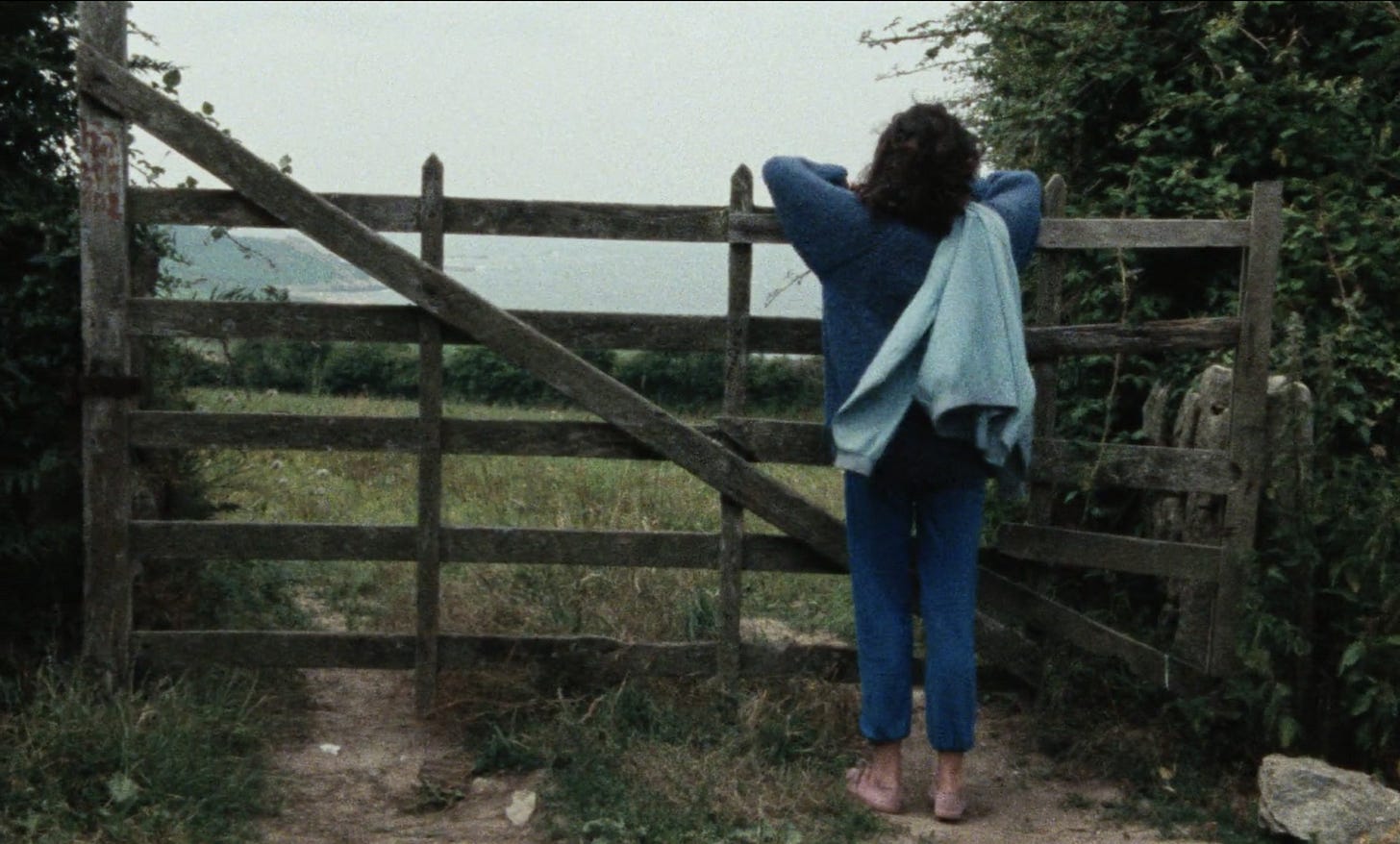
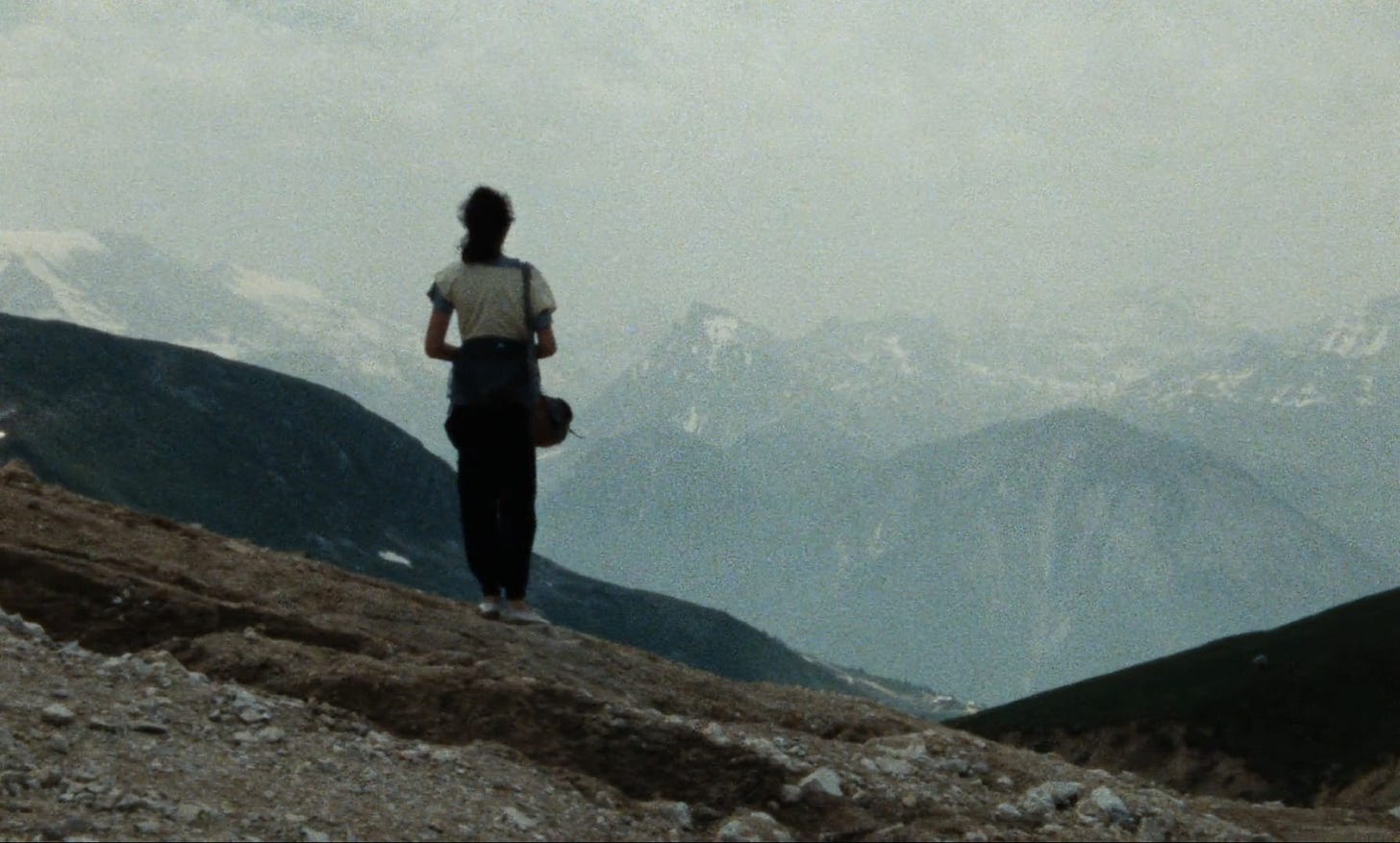
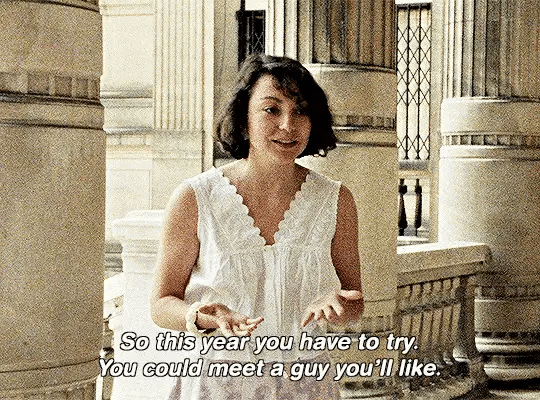
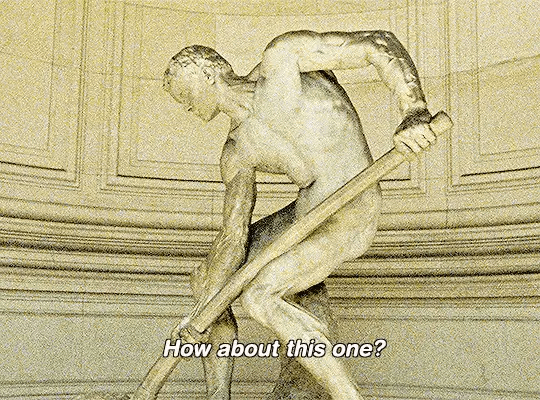
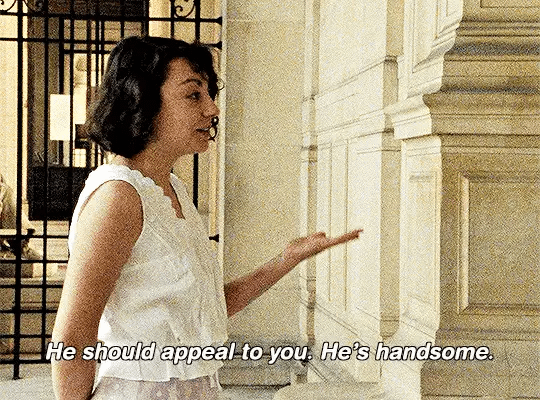
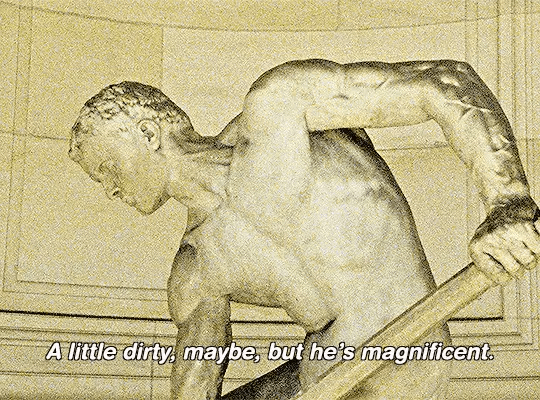
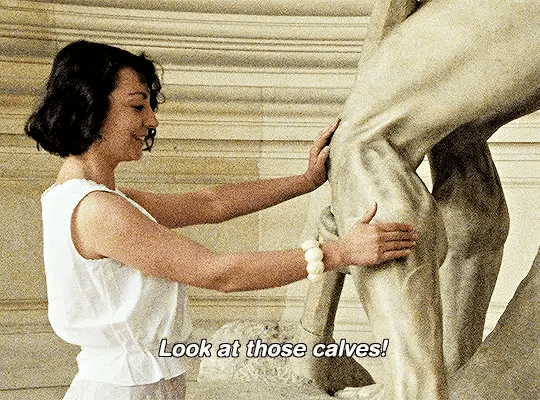
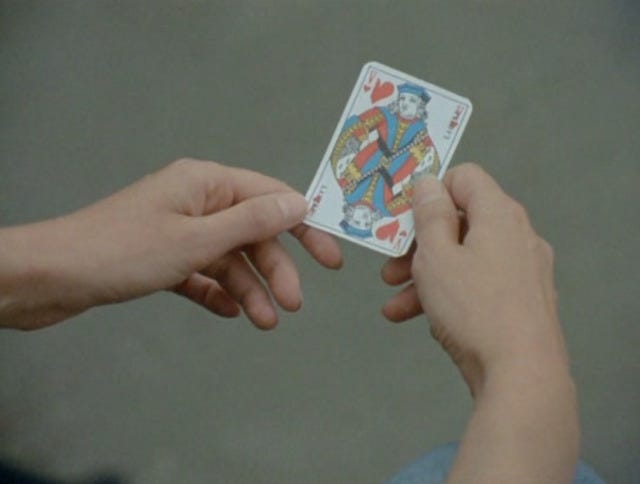
A great post. People look at me strangely when I say that one reason I want kids is that I want to one day be a grandfather with many grandchildren. I don’t think most people realizing that you need to plan that far in advance for the life you want.
Lovely. I used to believe the "you have to be happy alone first" idea; now I don't, but until reading this I hadn't noticed anything odd about the "a relationship won't fix you" thing. Now you mention it, why would being dissatisfied be wrong?
Fortunately for me, some instinct took over and 'made me' take risks to find my wife. Married for five years, first child on the way - I'm very glad I didn't stop to think too much!